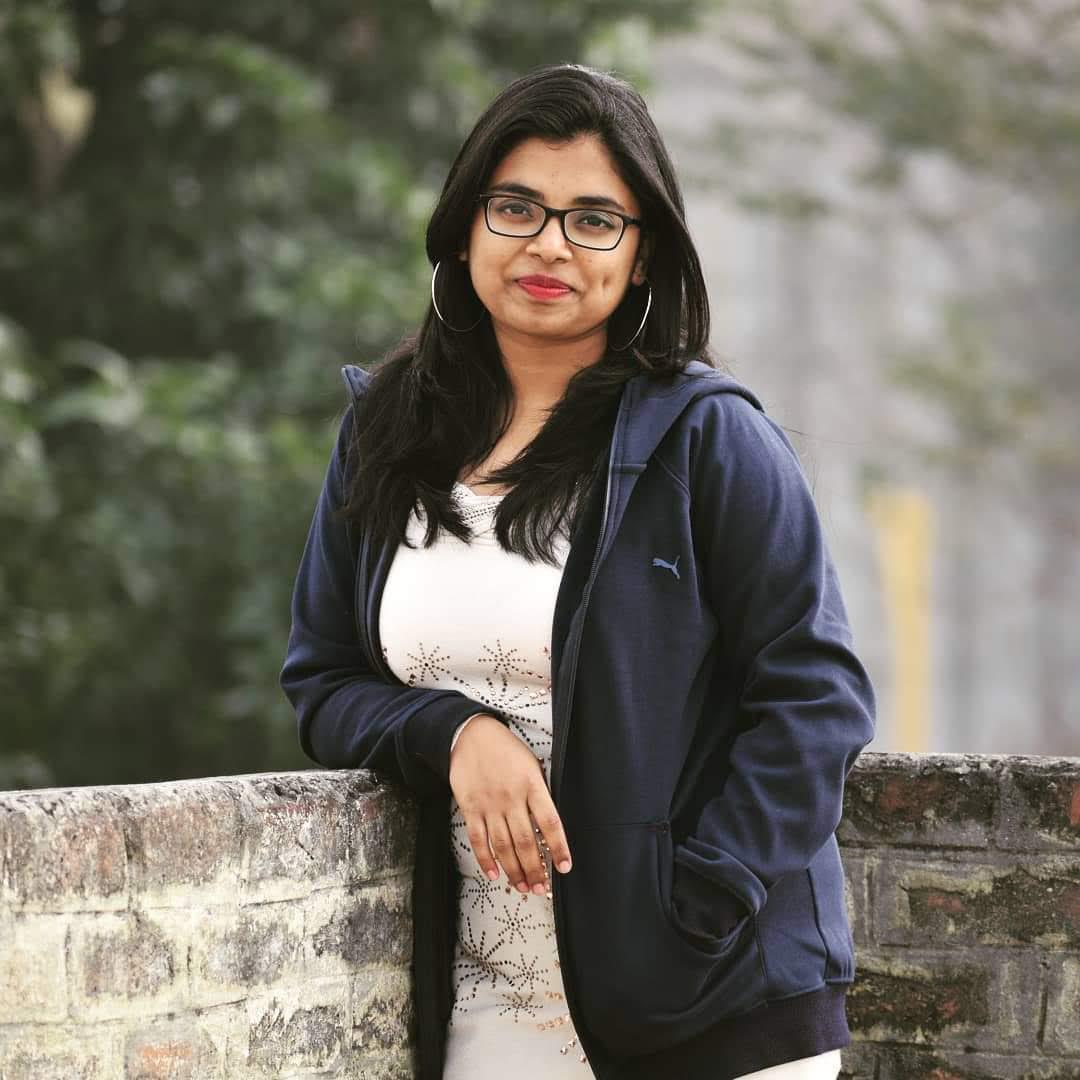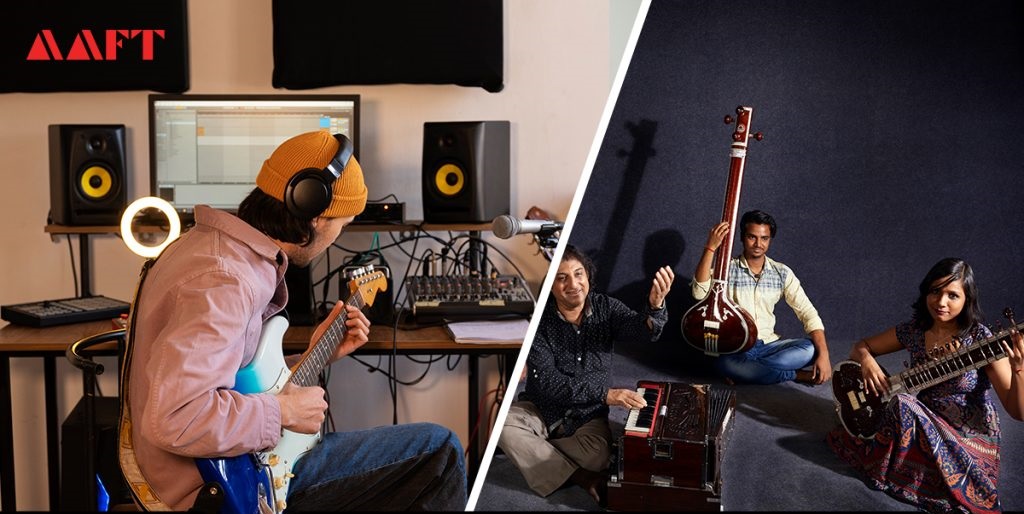Indian Classical Vocal v/s Western Vocal – Understanding the Key Differences
Music is a symphony of language. What words cannot describe, music can. Music knows no boundaries. The only thing that connects every religion, culture and nation with each other is music. Music has been there since the beginning of humanity. When it comes to vocal music, two traditions stand out – Indian Classical Vocal v/s Western Vocal.
While Indian Classical Vocal focuses on ragas and taals, western vocal focuses on scales and meters. Understanding the key differences between Indian Classical Vocal and Western Vocal is what we will be discussing in this blog.
Read Also: How AI is Changing the Future of Music Production
So, if you are dreaming to create mind-boggling tunes of Indian Classical or Western Music, you would want to scroll up.
Indian Classical Vocal – A Journey Through Time
Do you want free career counseling?
Ignite Your Ambitions- Seize the Opportunity for a Free Career Counseling Session.
- 30+ Years in Education
- 250+ Faculties
- 30K+ Alumni Network
- 10th in World Ranking
- 1000+ Celebrity
- 120+ Countries Students Enrolled
Indian Classical Music dates back over 3000 years and has its roots deep in the Vedic period. Under Indian Classical Vocal comes two traditions – Hindustani (Northern India) and Carnatic (Southern India). Both share a common philosophy but are very different in repertoire, style and techniques.
Indian Classical Vocal focuses on ragas and taals. Singers meticulously explore ragas, gradually building emotions and performing for hours.
Read Also: How to Become a Music Composer: Skills, Education, and Tips for Success
Book Now →
For instance, Raga Yaman can evoke calmness, while Raga Desh inspires romance. Also, instruments like the Tanpura and Tabla are integral, providing a rhythm and drone respectively.
Western Vocal – The Magic of Harmony
Western music originated from Ancient Greece and Rome. It is often linked with secular and religious contexts, like church services and theater halls. A choir and a cappella sets the perfect example of Western Music.
Instruments like piano and guitar often represent Western vocalists, adding richness to their performance.
Do you want free career counseling?
Ignite Your Ambitions- Seize the Opportunity for a Free Career Counseling Session.Read Also: 7 Key Benefits of Pursuing a Music Production Course
Understanding the Key Differences
| Key Difference | Indian Classical Vocal | Western Vocal |
| Improvisation | Improvisation is the soul of Indian Classical music You will be shocked to know that no two performances of the same raga can be identical. | Only Jazz and Blues allows improvisation in Western Music. Western Classical and Pop often follow a fixed composition. Jazz, on the other hand, is often referred to as the ‘Western cousin’ of Indian Classical for its free-flowing nature. |
| Training & Techniques | Indian Classical Vocalists undergo training like breath control, voice modulation, mastery over ragas and taals at a very young age. | Western vocalists focus on techniques like belting, head voice and chest voice. Choir singers are trained in reading music notations. |
| Cultural Contexts and Performances | Concerts often have an intimate setting, focusing on the emotional connection between the artists and audience. | Western performances often range from grand operas in lavish theatres to stadium concerts. |
| While Indian classical concerts have attendees in hundreds, a single Western artist can sell out a stadium with 50,000 seats. That explains the popularity no? | ||
| Philosophical Approach | Indian Classical Music is deeply personal and inward. People often align Indian classical music with devotion and meditation. | On the other hands, western music is a form of storytelling, reflecting romance, struggles, joy, sadness and societal themes. |
| Global Appeal | Now-a-days, fusion music bridges the gap between Indian Classical and Western Styles. Ravi Shankar and George Harrison popularized the blend. Also, how can we forget about AR Rahman. The artist has beautifully merged the improvisational depth of Indian Classical with the harmonies of Western Music. | |
| Challenges in Mastery | Indian Classical Music can be very challenging and requires lots and lots of practice to get a complete understanding about the raag and taals. | Western Classical music, on the other hand, demands versatility as singers often juggle multiple genres. Also, with the increase in popularity, there is an intense competition in commercial music spaces. |
| Science of Singing | Indian Classical Music improves breath control and mindfulness due to its meditative nature. | Western musical style, on the other hand, boost teamwork and emotional expression. |
Time to Choose Your Vocal Path
Finally, we have reached the conclusion of our comparative study on Indian Classical Music v/s Western Vocal. While they might have some similarities, they also do have many differences as well. Music is not about which style is superior – it is about which style speaks to your soul.
Read Also: Which Music Lessons Are Best for You: Piano or Guitar Classes?
Be it Indian classical or western vocal, music should be a symphony that speaks your heart out. As the great maestro AR Rahman once said, ‘Music knows no boundaries, it is the bridge that connects hearts across the world.’
So which introspective you belong to – the introspective charm of Indian Classical or the dynamic vibrancy of Western Vocal? Whatever your choice may be, keep singing, as music – after all is the universal language of humanity.

Meha Yadav is a skilled content writer with 4 years of experience, specializing in creating impactful content across various niches including journalism, fashion, hospitality, data science and more. Her expertise lies in crafting stories that engage readers and drive results, making her an invaluable asset in the world of digital communication.






